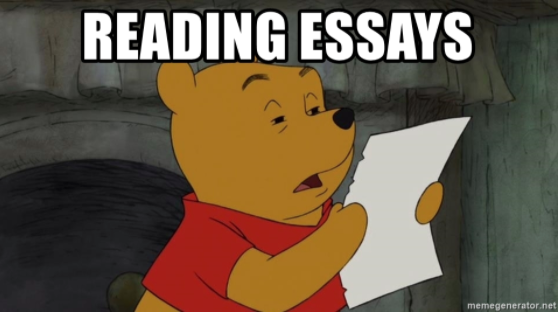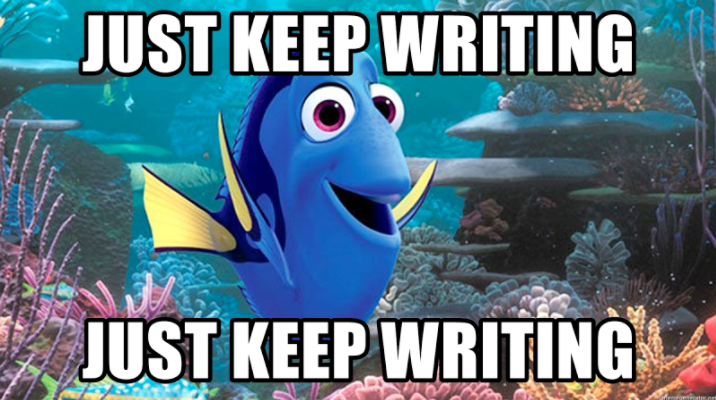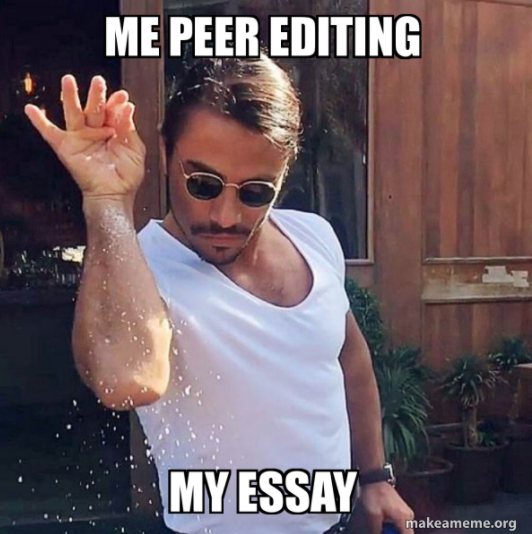How to Write a College Essay
8 min read•Last Updated on July 11, 2024
Stanley Wong
Stanley Wong
How to Write a College Essay
Congratulations! You’re thinking about starting to write your college essay! 🎉 The college essay is one of the most daunting parts about college applications and can be something that you keep putting off for later. However, writing a quality college essay takes time and if you start early and work on your essay little by little, it can make the process a lot more manageable! Among the many things that colleges are looking for, colleges want to read essays that are well planned out and authentic, so plan to dedicate a lot of time to writing them.
Like any essay, there are three main steps to writing a college essay:
1. Brainstorming 💭
Before you start immediately thinking of ideas for your own essay, it’s a good idea first to read 📖 a few successful college essays to better understand what a personal statement college essay should accomplish. By reading other essays, you can pick up on the general tone of most essays, as well as things that worked 👍or didn't work in some essays.

Once you read a few essays, it’s now time to start thinking of ideas for your own essay! Like any regular essay, the brainstorming phase of writing is often the most overlooked but critical to writing a good essay. Assuming that you are starting your essay process early and have a few weeks or months 📆 until you have to submit your application, I would suggest that the brainstorming phase takes place for a couple of days. Sometimes the best topic for a college essay isn’t necessarily the idea that you think of first, but the one that takes a little bit more soul-searching 🕵️♀️.
Here are a few lists 🗒 and exercises that might help bring out a potentially good college essay topic. You absolutely do not need to complete every one of these exercises, but they can be great places to start if you feel stuck.
Important Objects
For this exercise, list out 10-20 of the most important objects 🎁 throughout your life that may have had a significant impact on your life. Look around your immediate surroundings while completing this exercise. Try reaching back into the depths of your memory for those objects that you cherished as a child but might have forgotten about recently.
Distinct Events/Memories
Similar to the Important Objects exercise, try to list out 10-20 of the most distinct events or memories in your life that may have led to a revelation, a different way of thinking 💭, or personal significance. Do you have any specific hardships in your life that you faced that may have shaped you as a person? Any specific fun memories that you may want to talk about? Write it all down!
Things People May Not Know About You
More lists! This time, make a list of a few facts about yourself that you think many people don’t know about you. Sometimes these can provide slight nuances in your college essay that can make you stand out compared to other applicants. For further introspection, check out this guide about discovering yourself!
How Others Perceive You
For this exercise, have a few close friends or family members write a short list of traits or experiences that they think of when they think about you. Your personal statement essay is your one shot to try to truly encapsulate the kind of student and person you will be on a college campus 🧑🏫, so you’ll want to express the core of your personality in your essay. Receiving these compliments can also be a nice reminder of how great of an applicant you are as you approach the college application season 😁.
What Do You Want College Admissions Officers to Know About You?
For this exercise, jot down a concise list of 3 things that you absolutely want your college admissions officer to understand 🤔about you. These are the things about yourself that you absolutely want to get across through your essay. If someone edits your essay, they should be able to pinpoint 📍the items on this list.
2. Writing ✍️
Just Write!
Now is the time for the most intimidating part of this whole process: starting to write ✍️your essay. I know from firsthand experience how daunting it can be to be staring at a blank sheet of paper 📄and not know how to start. However, the best thing that you can do is just to start writing. Don’t try to make it perfect the first time around because it definitely won’t be. That’s the whole point of editing. The best thing that you can do if you don’t know where to start is just to write naturally! Write on a chosen essay topic as if you are trying to explain a story to your friends 👯♀️. You can also think about writing your essay out of order. It can be easier to start writing your essay from the middle and worry about the introduction and conclusion after you’ve already written the meat of your essay. Similarly, don’t worry about starting off your essay with a hook or fretting about grammar–that will come later during the process.

Go Over the Word Count Limit
Ok yes, in the end, you will definitely need to stick to the outlined word count limit that’s given to you. However, in the initial stages of writing your essay, don’t worry about writing your essay under the word count. Record ✏️ as many ideas on the page that you can. In other words, don’t let the word count initially limit your thoughts. From personal experience, sometimes the best ideas and connections come after writing over the word count limit 💯. If I had limited myself just to the word count, I might not have used those ideas in my final essay. During the editing phase, you can make sure that you are sticking to the essay requirements.
A Few Other Writing Tips
Write using your own voice 🗣 as much as possible! Try to avoid imitating someone else’s writing voice and tone. Colleges want to get to know the real you through this essay, and your voice is part of that! Along those same lines, avoid filling your essay with stuffy words 🎩. Your essay is a formal conversation with your admissions officer where you have an opportunity to sell a story. Sometimes using extremely proper or impressive diction may hinder the reader’s ability to truly understand the meaning of your essay.
3. Editing 💻
So you’ve gone through the brainstorming process and have written a rough draft of your college essay. Now it’s time to polish up that work!
Self-Editing Your Essay
Since you’re likely going to be editing your essay over a large span of time ⏳, it’s important to keep all previous essay versions and not continuously edit one version of your essay. You might end up deleting something from a previous version that you want to bring back but ultimately forgot about 😵. An edit that you might think is beneficial on one day may be an edit you want to go back and undo a few days later. I suggest that with every new session of editing your essay, copy and paste the essay you previously had and start editing on the new version of the essay. This way, you can still look back 👀 at previous versions of your essay when you feel the need to.
For the first few versions of your essay, you’re likely going to make many, many corrections. This is perfectly fine! With these initial revisions, you’ll edit full sentences and even paragraphs at a time, so it can be beneficial to edit directly online. Once your edits become less about complete ideas and more about word choice and grammar, it can be extremely helpful to print 🖨 out a physical copy of your essay. That way, you can read it aloud and physically mark edits with a red pen. Oftentimes, a screen can be a barrier to noticing all of the small details–interacting with them on pen and paper 📝 can make them more noticeable.
For a review of common grammar conventions, check out this guide from Fiveable.

Having Others Edit Your Essay
It can also be a great idea to have friends, family, and teachers look over your essay and suggest a few edits. However, be careful not to heavily rely on this kind of peer editing. You still want your final product to contain your voice 🎤, not the voice of your editor. If someone suggests something for your essay that you may disagree with, have another person look at your essay. If multiple people suggest the same edit, it may be something you want to consider. But if it was merely a one-time comment, it is absolutely okay to ignore their comment.
It can also be helpful for you to tell editors something specific to look for. Asking your editor specifically for content edits (big picture edits, development of story, etc.) or for copy edits (grammar errors, spelling errors, sentence syntax, etc.) can give your editor more guidance and a clearer pathway for their editing. For example, you may ask your friends to see if your essay best represents you as a person, whereas you might ask your teacher to edit for flow and grammar. This can make the edits that are suggested to you much more targeted 🎯 and detailed. It can also help ensure that both you and your editor are on the same page to avoid them giving you unsolicited feedback. Keeping this in mind, it can be a good idea to have one or two rounds of content editing and one or two rounds of copy editing.
A Few Other Things to Look Out For
- Check carefully for typos
- Be specific when providing context and background
- Someone who doesn’t know a single thing about your life should be able to fully grasp the story you are trying to tell
- Avoid introducing new ideas in the final paragraph
- Avoid forced transition sentences
- Avoid cliches
- Try to write as close to the word count limit as possible
- Use the extra word count to your advantage by adding more descriptors and details Hopefully, these tips can help you in your college essay writing process. We wish you all the best of luck–happy writing 😁!
Next, check out these top 10 Tiktoks for more college essay advice and tips for the rest of your college application or check out these top 10 YouTubers with the best advice for the college process! And for important deadlines in the college process, check out this guide!